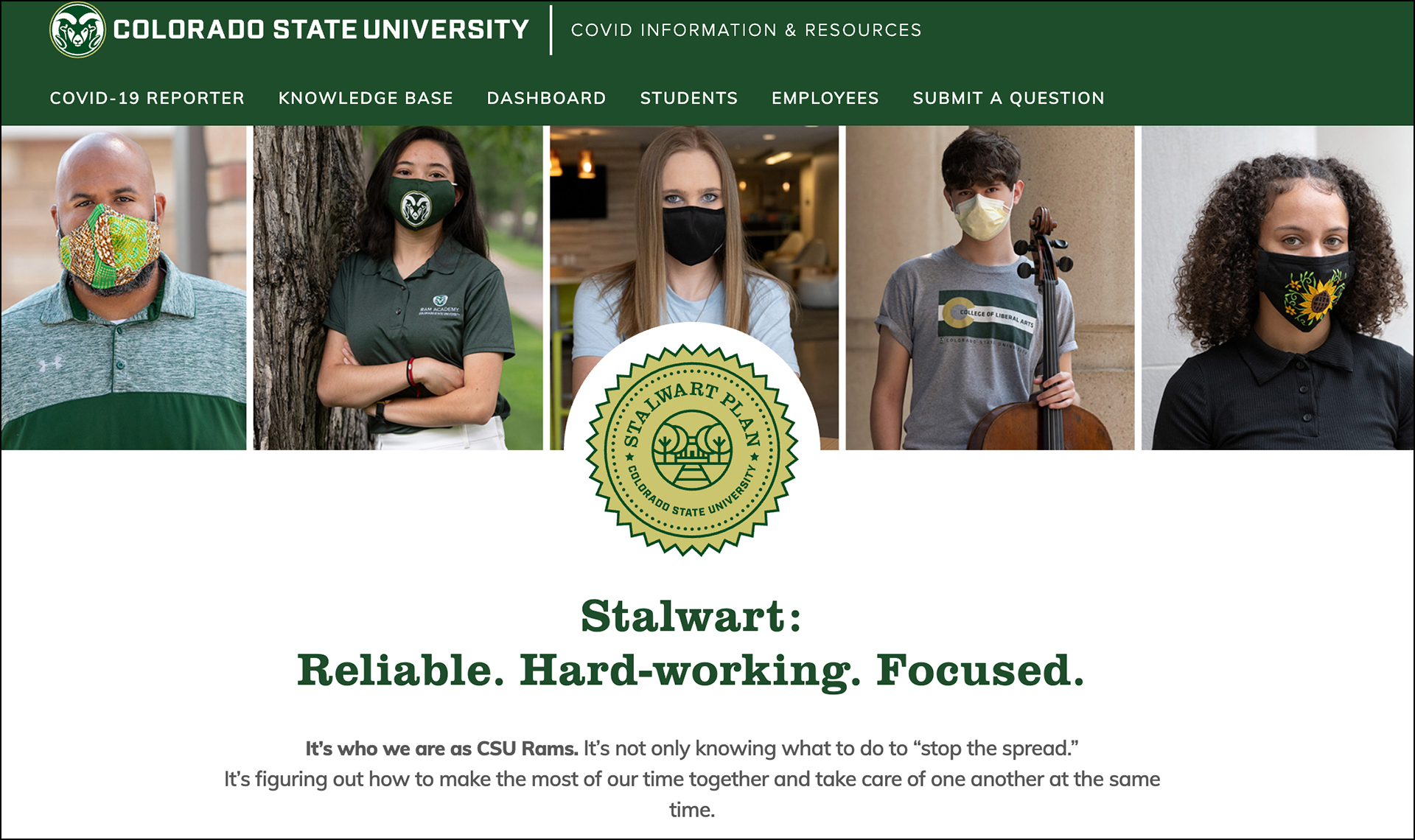Colorado State University leaders hosted a virtual town hall on Friday, Feb. 12, to update the community and answer questions about issues related to COVID-19, from screenings and vaccinations to plans for the Fall semester.
A recording of the session is available on YouTube.
CSU President Joyce McConnell began by thanking the University community for its successful efforts to adhere to health protocols. She said capacity for saliva screenings is expanding even more this week, with new pods offering the mandatory weekly screenings opening in the Moby Arena parking lot, near the Veterinary Teaching Hospital on South Campus, and at the Foothills Campus as soon as weather allows. CSU has tested more than 26,000 people so far this semester, and all students and employees are required to report symptoms, exposures, or positive tests on the online COVID-19 Reporter.
Lori Lynn, executive director of the CSU Health Network and co-chair of the Pandemic Preparedness Team, discussed vaccinations, and emerging variants of the virus that causes COVID-19, noting that vaccines developed thus far appear to be effective against them. She said CSU has not received its first batch of vaccines yet, and even when it does, demand will likely exceed supply for some time. She urged community members to get vaccinated as soon as they can, through the Larimer County public health office, local health-care networks, Walmart or King Soopers, when they are eligible.
McConnell said CSU leaders are strongly advocating for college and university educators to be incorporated into the state’s phased rollout of the vaccine as soon as possible.
Lynn added that the Office of Equal Opportunity is advising supervisors to not ask employees about their vaccination status, to maintain medical privacy.
More in-person learning
McConnell outlined plans to expand in-person learning opportunities in the Fall semester. New students will engage in small seminars and community-building activities in residence halls, and returning students will have additional in-person experiences such as labs, studio classes, senior seminars and experiential learning opportunities.
She added that CSU will offer a variety of learning options and will continue its commitment to keeping the university community well through the health protocols that have proven so successful thus far.
Provost and Executive Vice President Mary Pedersen advised faculty to communicate clearly to their students about any changes in their courses as a result of the Feb. 15 move to Phase III of the reintroduction of in-person learning this semester. She also said that while Spring commencement will be virtual again, there will be many opportunities to celebrate, including livestreamed ceremonial walks on the Oval for graduates.
Marc Barker, assistant vice president for safety and risk services and co-chair of the Pandemic Preparedness Team, said CSU employees are advised to continue working remotely if they can through the Spring semester. He added that the University has partnered with the City of Fort Collins and Larimer County to expand wastewater monitoring off-campus, in areas where large numbers of students live.
More information is available on the COVID Information and Resources website.

